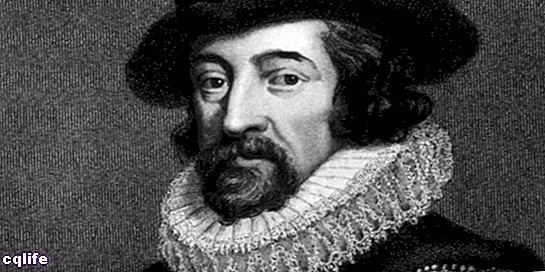We explain what a method is, and which are some of the most used. The emergence of the scientific method, and its criticisms.
A method orders our practice based on certain guidelines.What is a method?
The method is that process used in a systematic way, guiding our practice based on previously established principles.
The method scientistphico is the one used by the community scientific all in order to guarantee a high degree of veracity in its procedures and research, are rules that guarantee that a process and / or result is scientific and not a mere belief.
Bacon's scientific method

Although it was several great minds of the past who made contributions to the development of a scientific method (the ancient Greeks with the logic, for example), is undoubtedly Francis Bacon (English philosopher, considered the father of empiricism) the first to list clearly and concisely the steps necessary to carry out a scientific method.
- As a first step, we have observation. The man faces the nature, to what surrounds him, as something alien to other than him. This is accomplished through the senses. After a observation precise and detailed, we will carry out an inductive process.
- Induction is the process by which we extract general characteristics and with universal claims, based on the observation of particular events. These events must be repeated under various conditions, in a large number of cases, etc.
- Once this is done, we can sketch a hypothesis to explain the events that occurred, and this must be proven through the experimentation, to proceed with the conclusions.
Once this is done and if it is not refuted, we will be facing a real scientific knowledge after Bacon's model, or the "positivist classic." The physical It is the maximum exponent of the positivist model, having as its main weapon the laws discovered by Isaac Newton.
Karl Popper's critique of method
However, this model has certain very important limitations. One of the harshest and most overwhelming criticisms was directed by Karl Popper through falsificationism.
We will not dwell too much on Popper's ideas this time, but it will suffice to say that he categorically rejected induction, since it is logically impossible to discover singular facts. truths universal; however, the reverse is possible.
From this it follows that theories are not definitively "testable", but are "corroborated" for a time until a knowledge to collapse this and thus ensure the continuous advance of the science.
These models of scientific method must be more complex in the human sciences, since although they are very useful in natural Sciences, it is not possible to continuously experiment with individuals. This is explained by the preponderance of natural sciences for the development of a scientific method.
How scientific knowledge is produced, under what circumstances and how the scientific method is constituted is the task of the epistemology. Regarding the method of science, we can highlight the tasks of Imre Lakatos and Thomas Khun.
Other methods
![]()
In turn, there are different methods within the scientific method. The hypothetico-deductive method, the historical method, the sociological, the analytical, the hermeneutical, the logical-deductive method, and many more. This will depend on the branch of science that needs it, although they can (and usually) use more methods that are specific to the branch.
However, there are more methods beyond the scientific method. For example, contraceptive methods are ways of controlling birth rate and they range from prophylactics to birth control pills.
